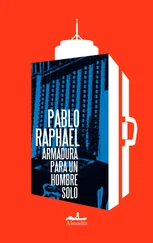1
THE MAN HAS WOKEN SUDDENLY, in the dead zone of the night. It is unnaturally hot for the time of year; his throat is raw and there is sweat in all his creases.
He stumbles to the sink for water. Then he sits in his armchair, and snorts a few times to clear his nose.
The bus station outside his window is being modernised, and he can hear the drills screaming even at this hour.
In the interests of reducing crime, two blinding floodlights have been installed in the station forecourt. They seem to have deceived the local birds, which now begin their dawn chorus in the middle of the night, just as the man succeeds in dozing off. At this very moment, they are squawking as if possessed.
Breathing heavily in his chair, the man is scorched by a halogen glow from outside, though there is darkness in the room.
Unmindful of the time, the travellers in the bus station bring great ingenuity to the making of noise, shouting and clanging and revving their moribund cars, as if no one were trying to sleep.
The man is nearing the end of his life’s tenth decade, and his apartment is on the fourth floor.
The main room measures four by three and a half metres. There is a bathroom to the side, and, at the end, an area for cooking. The window looks out on the stalls in front of the bus station, where people sell goods from China: alarm clocks, watch straps, plastic plants, batteries, T-shirts, souvenirs, and so on. There are also currency sellers who sit waiting to trade with those who arrive on buses from other countries.
There is a leak in one corner of the man’s ceiling, which lets in water when it rains. This water has leached slowly into the plaster in a shape that resembles a map of Australia, causing paint to fall and a smell of cisterns to hang continually in the room.
The window faces west; so the apartment is brightest in the evening.
The government still sees fit to pay the man a pension every month in order to sustain him in his penury. When he retired, many years ago, this money was quite adequate: he lived alone and had few requirements. But with everything that has happened in the economy, his pension has become worthless, and his savings have disappeared. If it were not for the generosity of his neighbours, who buy food and other supplies for him every month, he would now find himself in an alarming situation. They are good people: they pay for the man’s television subscription, and the wife even cooks his meals, since he can no longer manage it himself.
But he does not like bothering them every time he needs more coffee or toilet paper. He has put in many years on this earth, and he feels he has a right to expect that such things will come to him unbidden.
Events have turned the man blind. But his hearing is quite intact, and his primary entertainment is still his television. He looks in vain for programmes about jazz, for these they do not show; instead he sits in front of beauty contests, infomercials, German pornography, travel shows, and other similar kinds of modern wisdom.
Sometimes, late at night, when his television is turned off, he hears the interminable ring of a telephone somewhere below, and he lies awake wondering where in the world this yearning might be housed, and what it might seek so insistently in this building.
In the afternoons, the breeze brings with it a slight scent of old urine from the wall below his window. All the men who pass through the bus station duck behind that wall to relieve themselves against it. There are public toilets in the station, but they do not seem to be able to compete with the wall, which holds an uncanny attraction for any man with a full bladder. Even men who have never been there before, and do not realise it is already filled with the reeking sludge of twenty years, give not a second glance to the broken cubicles at the edge of the square. At any moment, two or three of them can be seen standing in the shelter of this wall, shaking out their last drops.
Women use the cubicles, broken as they are.
On hot days, the smells become overpowering, and rain comes as a relief, washing everything away. The blind man sits by the window when the rain is heavy and he can hear the different patters of near and far: the silky spray in the trees, the heavy drumming on plastic water tanks, the hard scatter of roads and pavements, the different metallic pitches of car roofs and drain covers, the baritone trilling of tarpaulin, the sticky overflow of mud, the concentrated gushing of drainpipes — and, for a moment, the landscape springs forth, and he is reminded how it is to see.
With the exception of his back, which tortures him every morning, the man’s health is still passable, and yet, by the sheer force of numbers, his death cannot be so far away.
As a child, the man watched his grandmother stick up biographies of the dead on the trees outside their house. She had come from a village near the Black Sea — cut off, now, by the border — and it was the dead from this distant village whose accomplishments were listed on the trunks of those proud and equidistant plane trees. Every day, it seemed, was the death-day of someone or other from that remote place, and his grandmother told him the stories over morning tea as she wrote out her obituaries. She tied them with string to the trees, where they decomposed gradually in the rain, to be renewed the following year.
‘How do you remember?’ he asked her again and again, for it seemed marvellous that the entire history of that lost dynasty could be preserved in her mind. But his father disapproved of the rural practice and her own life was never written up on a tree.
Sensitive, like all infants, to the beyond, the man had in those years a powerful sense of the infinitude of generations. He had seen people buried in the ground with their eyes closed; and in his mind he envisioned the earth in cutaway, with the stacked-up strata of sleeping bodies so vertiginous in its depth that it was simple to believe the lightness of life on the surface to be no more than their collective dream. For the dreamers, quiet and eternal in their moist refuge, greatly outnumbered those with open eyes.
These old intuitions returned to the man recently, when he listened to a television programme about a town that was buried under water after the construction of a dam. Eighty years later, the dam was decommissioned and dismantled. The lake subsided, the river resumed its previous route, and the town rose again into the sunlight.
There had been extensive damage, of course. Water had dissolved the plaster from walls, and roofs had caved in. Wooden buildings had floated away, bit by bit. Trees had died, and the whole town stank of dead fish and river weed for weeks after it was drained. But there were a couple of cars still parked on the streets — antique models, as the man remembered from his own youth. There were clocks arrested at different times, and a cinema with the titles of old films still stuck up outside. Road signs had stood firm all this time, pointing the way to underwater destinations. In every house, things had been left behind. A man found a jar of pickles in a kitchen, and tasted them, and pronounced them still good.
There were some old people who had lived in the town before the deluge and were taken back to see it again, and it was for them as if they were transported back into a childhood fantasy.
These days, the man devotes himself to wading through the principal events of his life in order to discover what relics may lie submerged there. Of course, he has no family around him, his friends have all gone, and he knows that no living person is interested in his thoughts. But he has survived a long time, and he does not want it to end with a mindless falling-off.
Читать дальше
Конец ознакомительного отрывка
Купить книгу












